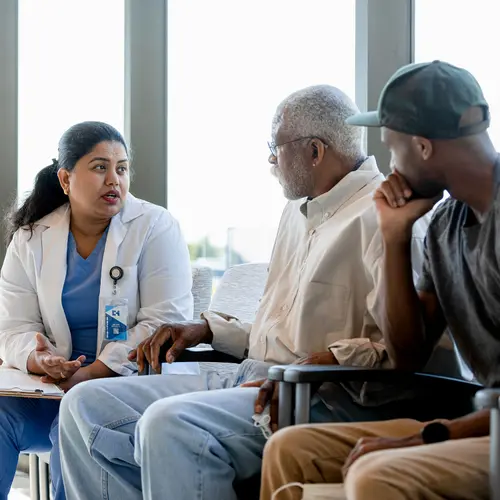About 1 in every 4 seniors falls at least once a year, and that’s even more common for people who have Alzheimer’s disease. The main thing to watch for is any sign that your loved one’s condition is worse after a fall.
If they’re knocked out (unconscious), stay calm. Most people wake up in less than a minute. Don’t try to move them until you know it’s safe. Call 911 so they can be checked by a professional.
You also should get medical help right away if they:
- Can't stay awake
- Can't move a part of their body
- Have new weakness anywhere in their body
- Can't stand or walk normally (and could before)
- Have a seizure before, during, or after the fall
- Have bleeding you can't stop
- Look like they might have broken a bone
- Are suddenly short of breath
- Have a serious headache
- Vomit more than once in the 24 hours after the fall
- Have neck pain
- Have pain in their belly or chest
- Seem confused or disoriented
If you’re worried about a serious injury, such as a broken bone or a head or neck injury, don't move them.
What to Do if Your Loved One Falls
Most of the time, people who fall aren’t hurt or only have minor problems that you can manage at home.
If they’ve fallen and are awake but haven’t gotten up, ask them not to until you’re sure they’re OK. To decide if it’s safe to get them up, ask them if they hurt anywhere, especially their head, neck, shoulders, wrists, hips, and knees.
If they can’t answer questions, check these areas yourself. Watch the way they move to look for signs of pain. Touch them to check for pain, swelling, or other sign of injury. Give first aid if they have any minor injuries.
If they generally seem OK, have them slowly sit up and see how they feel. If they’re still alright, help them up into a chair. If they’re scared or upset, have them rest with their feet up. It may calm them if you play music or put on a favorite TV show or video.
In the 2 or 3 days after the fall, stay on the lookout for any sign that your loved one might have a new illness or a change in their condition. Make a doctor’s appointment if they:
- Fall 2 or more times, even if they seem fine each time
- Do things that make you worried they’ll fall
- Have diarrhea, a rash, or pain when they pee
If You Have to Help Your Loved One Up
Ask them to lift themselves while you keep them stable. A good way to do this is to have them sit up or get on their hands and knees, get their feet under them, hold on to something sturdy, and pull themselves up.
If you must lift them yourself, keep them close to you. Don't bend over; lift with your legs instead.
Prevent Falls
The best way to manage falls is to keep them from happening. You can do a few things to make it less likely your loved one will fall and get hurt:
- Help them start an exercise program to make their legs stronger and help with balance. You can ask their doctor about exercise programs for people with Alzheimer’s disease.
- Many medications can cause dizziness, sleepiness, or confusion. They also can affect blood pressure, balance, the ability to respond quickly (reflexes), and judgment. These can make falls more likely. Some over-the-counter medications can cause problems, too. Ask your doctor or pharmacist if there are safer ones they can take.
- Have a doctor check your loved one’s eyes. Sometimes people fall because they don’t see well.
- Have a doctor check to see if your loved one’s blood pressure drops when they stand up.
- Do a home safety check up and fix any problem areas. Poor lighting, slippery or uneven floors, and shoes that are loose or have slippery soles all make falls more likely. Sometimes, older people are afraid to go up or down steps or get up to use the bathroom at night. To get around this, you can put handrails in stairwells, or light the path to the bathroom at night.
- Add grab bars near the toilet and near the shower or bathtub to help them stand up. A shower chair is also a good idea.


